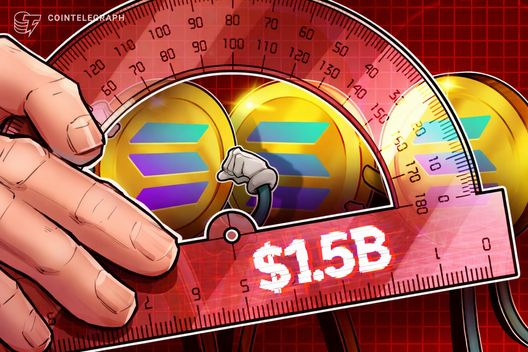Coinbase (COIN) has announced the integration of decentralized exchange (DEX) trading within its primary app for customers across the U.S., excluding New York State. This initiative aims to transform Coinbase into an “everything app” for the cryptocurrency ecosystem. By harnessing DEX aggregators like 0x and 1inch, the platform will facilitate on-chain trades, connecting users directly to liquidity from decentralized markets such as Uniswap and Aerodrome.
As part of this launch, traders will gain access to an expanding array of Base-native tokens, including innovative assets from Virtuals AI Agents, decentralized tokenized funds from Reserve Protocol, index tokens from SoSo Value, and offerings from Auki Labs and Super Champs. This move not only enhances user experience but also marks a significant shift towards self-custody and permissionless trading.
The appeal of DEX trading lies in its ability to execute transactions directly on the blockchain, allowing users to bypass traditional centralized exchanges. This offers advantages like a broader selection of assets, quicker listings for new tokens, and potentially lower fees. However, it does entail risks such as exposure to smart contract vulnerabilities and market volatility.
Furthermore, this update reaffirms Coinbase’s strategy to serve as a comprehensive gateway to both centralized and decentralized crypto markets. By embedding Web3 tools into its core platform, Coinbase is well-positioned to cater to users seeking greater control over their trading and asset storage.
“The integration of DEX trading is a significant step for Coinbase, especially in light of the rising popularity of decentralized trading options observed in the recent bull market,” said Max Branzburg, Coinbase’s vice president of product.
Coinbase’s initiative comes amid the growing momentum of DEXs, evidenced by data from DefiLlama reporting a daily trading volume of $12.8 billion for decentralized exchanges—far surpassing Coinbase’s total of $3.5 billion, and highlighting monthly DEX volume exceeding $407 billion. This evolving landscape is indicative of the increasing demand for non-custodial trading options following high-profile incidents like the FTX collapse.

Coinbase Launches Decentralized Exchange Trading
Key points regarding the launch of decentralized exchange trading in Coinbase’s main app:
- DEX Trading Integration: Coinbase is introducing decentralized exchange trading within its app for U.S. customers (excluding New York).
- On-Chain Trade Execution: Trades will be routed on-chain through DEX aggregators like 0x and 1inch, pulling liquidity from decentralized markets such as Uniswap and Aerodrome.
- Expanded Asset Access: Traders will have access to an expanding list of Base-native tokens from various projects including Virtuals AI Agents and Reserve Protocol.
- Benefits of Self-Custody: DEX trading allows users to maintain control over their assets, reducing reliance on centralized intermediaries.
- Risks Involved: Users should be aware of risks like smart contract vulnerabilities and volatility in trading thinly traded markets.
- Growth of Decentralized Volume: DEX volume has surged, significantly exceeding Coinbase’s trading volume, reflecting growing user interest.
- Enhanced Web3 Tools: This move by Coinbase contributes to its strategy of embedding Web3 tools, attracting users seeking more autonomy in their crypto transactions.
- Market Positioning: The introduction positions Coinbase as a key player in both centralized and decentralized crypto markets, potentially influencing the overall trading landscape.
Coinbase Expands with DEX Trading: A Game Changer in Crypto
Coinbase’s recent integration of decentralized exchange (DEX) trading within its main app marks a significant evolution in the cryptocurrency landscape, particularly in the U.S. market, excluding New York. By allowing users to engage directly with blockchain-based liquidity pools, Coinbase is making a bold statement about its aspirations to transition into an all-encompassing “everything app” for digital assets. This not only enhances user experience but fundamentally changes the dynamics of how trades are executed, shifting reliance away from centralized entities.
Competitive Advantages: One of the standout benefits of this update is the ability for traders to utilize self-custody and permissionless access to liquidity. This shift towards on-chain transactions could attract a new demographic of crypto users who prioritize security and control over their assets. Additionally, the integration fosters quicker access to a broader array of tokens, which may delight users eager for fresh investment opportunities. The potential for lower transaction fees further sweetens the deal, especially in an era of soaring trading costs.
Competitive Disadvantages: However, while DEX trading can reduce some risks, it introduces new challenges associated with smart contract vulnerabilities and potentially high volatility linked to thinly traded assets. For instance, if a user interacts with a less established token, they may face greater exposure to market fluctuations. Furthermore, with an expansive list of new tokens available, users may find it overwhelming to discern viable investment options from less reputable assets, potentially leading to poor trading decisions.
This development could significantly benefit crypto enthusiasts looking for greater autonomy over their trading activities, particularly those who’ve become disillusioned with traditional exchanges following high-profile failures like FTX. Conversely, it may pose challenges for less experienced traders who might struggle with the complexities of DeFi platforms. The confidence instilled by the Coinbase brand might ease this transition for some, but it remains to be seen how its user base will adapt to the dual nature of trading—where centralized and decentralized methods coexist.
In the competitive landscape, Coinbase now finds itself effectively positioned against emerging platforms like HyperLiquid, which recently gained traction with substantial trading volumes. By merging the attributes of both centralized and decentralized trading under one roof, Coinbase is not just responding to current market demands but also driving the industry towards a more integrated future.

















